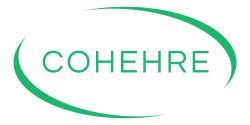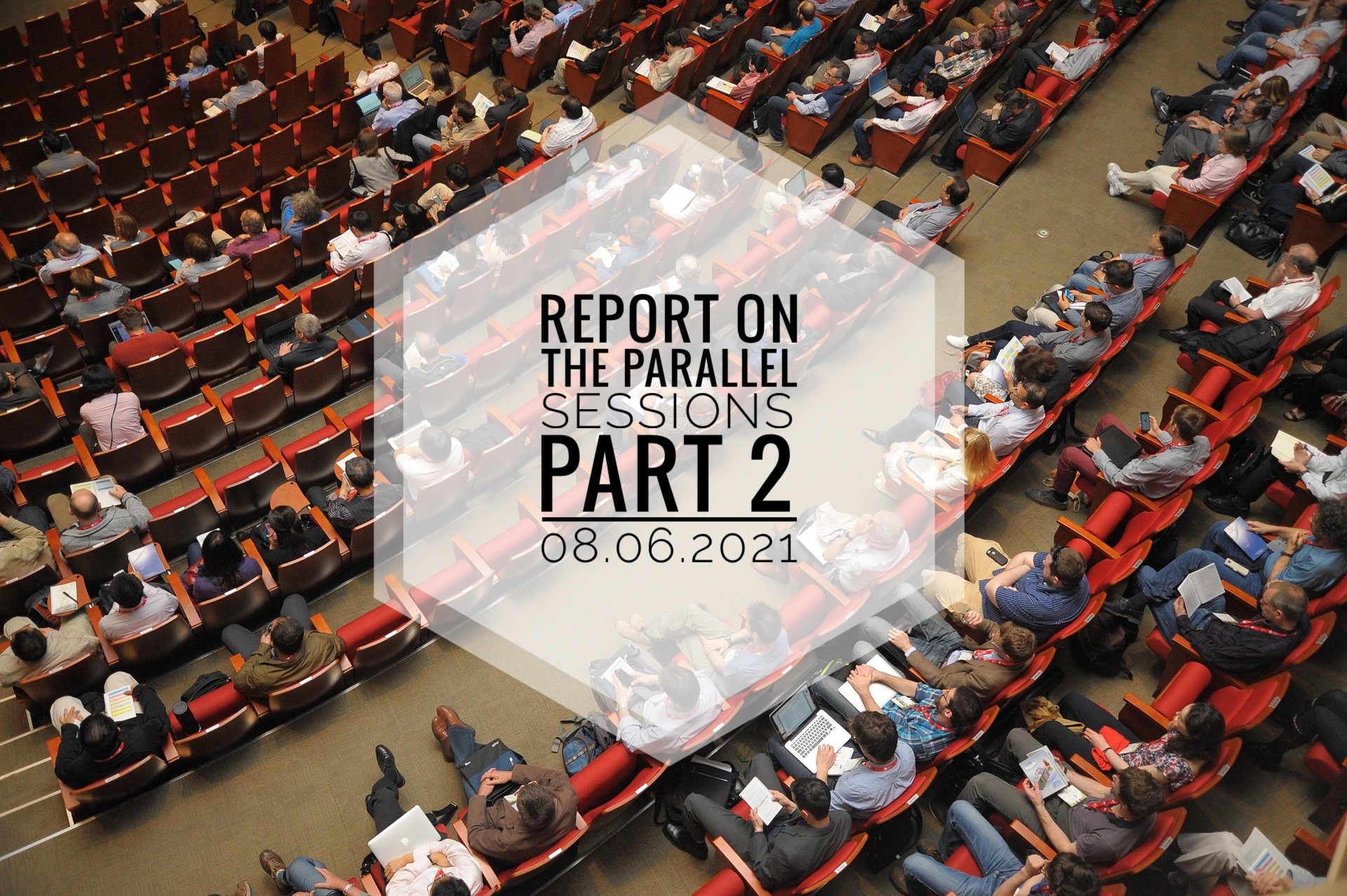Parallel sessions part 2
By Isabelle Delariviere In NewLast year, the COHEHRE Research team accepted abstracts for presentation at the parallel sessions in the annual conference in Rotterdam. For the purpose of not losing any of the valuable time and effort the participants put in their presentation, they were given the opportunity to share their presentations in a webinar. This resulted in a second, very interactive webinar, which you could enjoy again in this recording. The slides of each of the presentations can be found below each abstract.
Development and implementation of blended learning modules
Speaker: Adinda Toppets, PXL, Belgium
Category
Innovative Educational Project
Description
Background:
Wound care is an important part of nursing care. We see an increase in the number of chronic wounds and an increase in the number of wound products offered by pharmaceutical companies. During the last 10 to 15 years the possibilities in the treatment of complex wounds have increased dramatically.
When preparing a treatment plan for complex wounds, the nurse needs different skills. There is a large variation in the appearance of different types of wounds. The nurse must make multiple choices when preparing a treatment plan. These choices are based on the presence of (potential) problems in a wound such as the presence of a wound infection.
Recognizing these problems requires specific competencies and training.
Aim:
The purpose of this project is to develop a blended learning course that enables students to acquire the necessary knowledge, skills and competencies to draw up a treatment plan for a wound.
Methods and materials:
We developed a course of blended learning wound care for the nursing education (second and third year) and postgraduate wound management. The course was evaluated by focus groups with students.
Outcomes:
We have developed seven modules in blended learning. Each module contains transfer of knowledge by means of several short films, alternated with questions. After completing the online module, the student is invited to a workshop at the university. This workshop can contain a case discussion or learning a practical skill.
Seven blended learning wound care modules have been developed. These modules contain 72 films related to theoretical knowledge, more than 200 questions and 16 different videos of technical skills.
The students were very satisfied with the teaching methodology. The biggest advantage that the students mentioned is that they can study wherever and whenever they want.
Conclusion:
The Blended learning modules are included in the curriculum of the nursing education and the post-graduate wound management.
Keywords
Wound care, blended learning, distance learning
SOHE Bridge – online-learning model on the run
Speaker: Aino Ezeonodo, Turku UAS, Finland
Category
Innovative Educational Project
Description
SOHE Bridge – online-learning model on the run
Background and Relevance:
SOHE Bridge – Promoting employment of immigrants in Social and Health Care Sector in Finland (2018-2020) is focused on the immigrants with a higher education degree in social and health care accomplished outside EU/EEA. There have been difficulties to obtain professional rights. At the same time, there is labour market shortage. According to the ministries, the employment of highly educated immigrants must be streamlined. This project has created a module-based further education to speed up professional recognition.
Aim:
The aim of this project is to develop a smooth recognition and professional recertification process with language capacity building for immigrant nurses and others. This mainly online module-based further education aims to be a centralized, permanent and national model.
Methods and materials:
Multidisciplinary team of 32 health care teachers and 4 Finnish language teachers from 4 UASs in Finland are developing the model by combining professional substance and language studies. By November 2019 there are over 90 immigrant nurses participating and 10 other professionals. Project goal was 60 nurses and 13 other health care professionals. The model consists of the initial mapping of the competencies and guidance, professional and Finnish language studies, work placements and simulations. This project is based on The Career Path Project (ESF 2015-2018) where the first draft of the model was designed.
Outcomes:
The integration of substance and language teaching is the core of the model. The evolved mainly online module-based further education could now be a permanent national model. Aiding the immigrants to obtain a right to practice their profession. All graduated participants (11) by November 2019 have gained professional rights and workplace in their own field.
Conclusions and future direction:
Faster and more flexible process in professional recertification and better workplace integration is anticipated by undergoing this module-based further education. The project promotes equality by supporting the education of immigrants. The permanent funding of the national model in the future is still under the process.
Co-author(s)
Sirpa Rajala, Lic.Phil. Senior Lecturer in Finnish language, Turku University of Applied Sciences, Finland, Aino Ezeonodo, RN, CEN, CPN, CNICN, MHC, CCBC, Senior Lecturer, Metropolia University of Applied Sciences, Finland, Raija Sairanen, M.Pol.Sc.,RN,RMN,RNT, Senior Adviser, Emerita, Turku University of Applied Sciences
Keywords
Immigrant nurses, workforce, online-learning model
Click here to look at the slides.
Student’s perspective about learning and assessment in nursing higher education
Speaker: António Ferreira, Portuguese Red Cross Northern Health School, Portugal
Category
Research Study or Practice Development
Description
Background:
Student’s involvement in learning and assessment process are actually the way to increase self-directed learning and become a advantageous in the development of professional and soft skills. Teacher and students are currently challenged to cooperate in creating a learning environment that promotes the achievement of expected learning outcomes and competences.
Aim:
To describe the perception of nursing students about the contributions of peer feedback in the acquisition of skills required for future professional practice.
Methods and materials:
A qualitative, descriptive study using a focus group. The focus group with 12 students of Portuguese Red Cross Northern Health School occurred during 2 hours. The criteria of inclusion the students are: Students from 3th and 4th nursing degree, participated in one formative session and one workshop about use of peer feedback strategies and submitted to peer feedback methodology during clinical training. The information were record with audio-record after the consent off all participants. Data analysis was performed using was performed using IRAMUTEQ software.
Result:
students perception about the contribution of peer-feedback in the acquisition of skills are: promotes Self-directed learning (19,2%), is considered collaborative method (17,3%), promotes self-awareness (15,4%), engagement (13,5%), decision making (13,5%), Self-assessment ability (11,5%) and critical-reflective thinking (9,6%).
Conclusion:
These results are an important contributes to guide the implementation of collaborative learning and assessment, enhancing policies and pedagogical practices, thereby strengthening nursing education and quality assurance.
Keywords
Peer-feedback, students, nursing
Co-author(s)
Fernanda Príncipe, Senior Lecture, Portuguese Red Cross Northern Health School, CINTESIS – Center for Health Technology and Services Research, Liliana Mota, Lecture, Portuguese Red Cross Northern Health School, CINTESIS – Center for Health Technology and Services Research, Sónia Novais, Lecture, Portuguese Red Cross Northern Health School, CINTESIS – Center for Health Technology and Services Research, Claudia Sousa, Lecture, Portuguese Red Cross Northern Health School, Ana Torres, Lecture, Portuguese Red Cross Northern Health School, Center for Health Technology and Services Research (CINTESIS-UA), Ana Quesado, Lecture, Portuguese Red Cross Northern Health School, Maribel Carvalhais, Lecture, Portuguese Red Cross Northern Health School
Click here to look at the slides.


